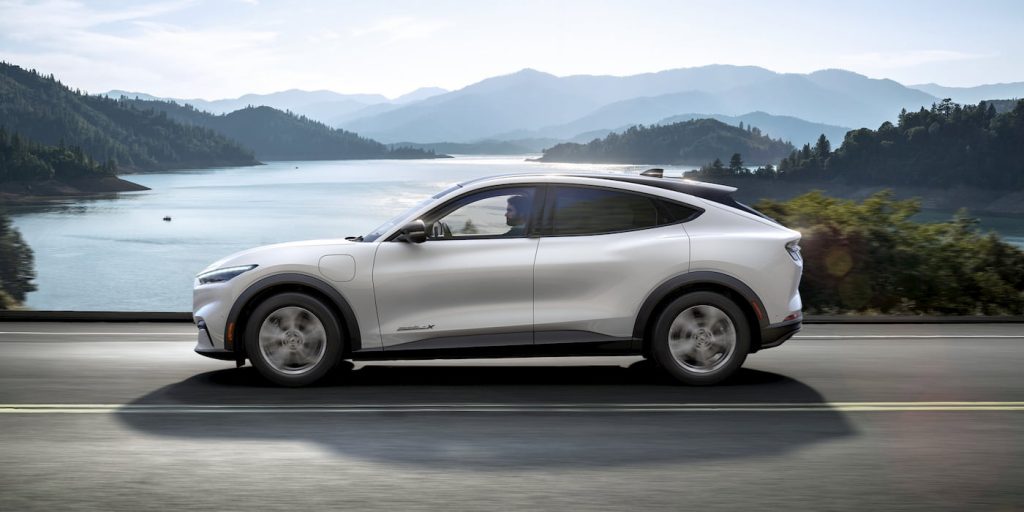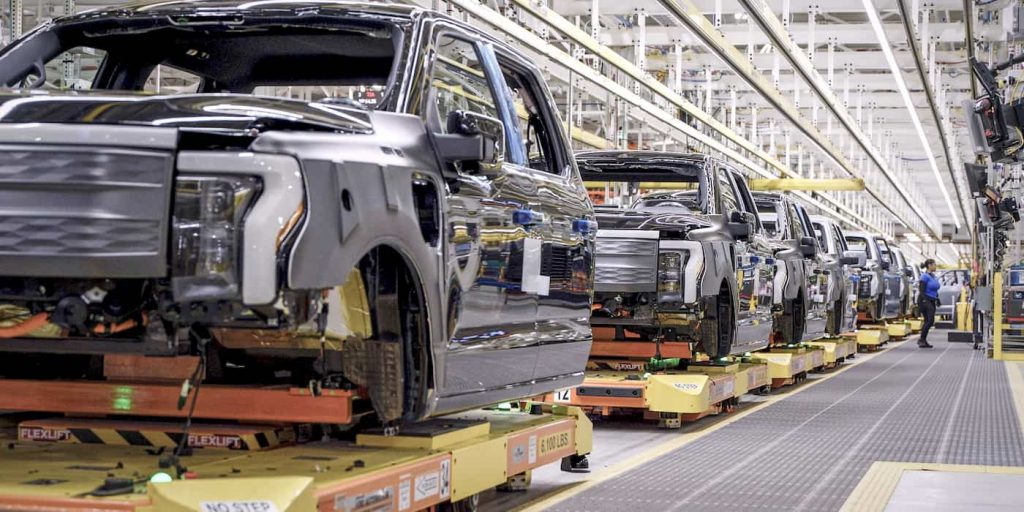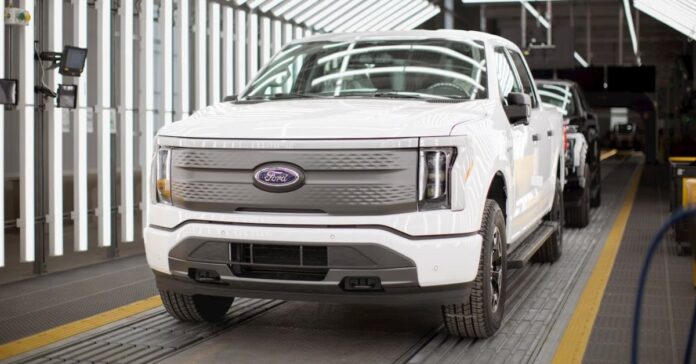As Ford struggles amid the industry’s shift to EVs, the automaker plans to lean into its hybrids. In a move that mirrors Toyota, Ford is scaling back its transition to EVs to bet on hybrids.
Despite Ford’s EV sales hitting a new record with 8,958 electric vehicles sold in November, the automaker is scaling back.
Ford sold more F-150 Lightning models last month (4,393) than it did in the entire third quarter (3,503). The Lightning edged out Rivian’s R1T for the top-selling electric truck spot through November.
Despite this, Ford’s CEO Jim Farley explained on the company’s Q3 earnings call that he’s “so thankful we have kept our foot on the has to freshen our ICE and HEV products as we enter a changing market.”
Farley added that Ford Blue (Ford’s ICE business) “will be strong and a growing business for years to come.”
The automaker’s leader said that although Ford remains “bullish on Model e and our EV future,” the market is “a moving target.”

Ford to lean further into ICE, hybrids
Ford recently scaled back several EV initiatives. The company’s CFO, John Lawler, added that Ford is “slowing down several investments,” including around $12 billion in EV spending.
Lawler reiterated the stance last month at the 2023 Barclays Global Automotive & Mobility Conference. He said the company is not changing its strategy but rather “changing the pace and flow” of capital and capacity put in place.

This includes cutting planned production at its Marshall plant by about half, reducing inverter and motor capacity, and pulling back on vertical integration plans.
Ford’s financial leader said the company will lean into hybrids as a “bridge” to EVs. The comments mirror Toyota, which has notoriously stuck to its hybrid stance. Despite plans to accelerate its pace over the next few years with new tech, Toyota’s EV sales accounted for just 1% of its total volume last month.
Lawler said Ford “became a little bit complacent” on hybrids. He said hybrids were always a big part of the mix, and “with EV adoption slower, hybrids are going to be a bigger part.”
Electrek’s Take
Ford’s financial boss is overlooking a key piece of info – EV adoption is not slowing. Recent research from BloombergNEF shows “reports of an electric vehicle slowdown have been greatly exaggerated.”
Passenger EV sales are expected to reach 14 million this year, climbing 35% from 2022. In the US, Ford’s biggest market by far, sales are growing even quicker, with 50% growth expected this year.
As the report notes, many legacy automakers have launched products that are “not competitive on price, range or features.” As a result, EV makers like Tesla, Rivian, and BYD continue gaining market share. EV leaders, including Tesla, BYD, and Li Auto, will account for 7% of global vehicle sales this year compared to just 1% in 2020.
Other legacy automakers, like Hyundai and Volvo, are doubling down on EVs with competitive, unique models.
Volvo is launching its cheapest and smallest vehicle, the EX30, with starting prices under $35,000. Despite its compact size, Volvo expects to see big demand for the electric car.
Ford is about to face new competition with Tesla’s Cybertruck rolling out and new Silverado and GMC Sierra electric trucks launching next year. This could be a reason for Ford shifting plans to focus on hybrids like Toyota.
Pushing back investments now while others are surging ahead could put Ford further behind as the industy shifts to an all-electric future.


